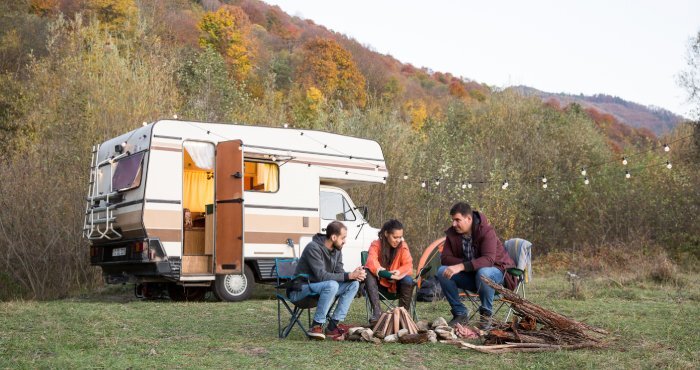The trend of van living is on the rise, with many individuals opting for mobile homes instead of traditional mortgages. These can range from factory-made campervans to personalized tiny homes created by owners or upfitters. However, issues may arise when these vehicles become burdensome rather than liberating, facing problems like roof leaks, electrical fires, or ongoing drivetrain malfunctions. This leads many van owners to question whether California’s Lemon Law provides any protection for converted vans and campervans.
The brief answer is: occasionally. The more detailed explanation hinges on the specific defect within the vehicle, the manufacturer or warranty provider responsible for that part, the status of the vehicle’s original warranty, and how it has been registered and utilized.
The legal backbone: the Song-Beverly Consumer Warranty Act
The Lemon Law in California, formally known as the Song-Beverly Consumer Warranty Act, safeguards consumers whose vehicles, covered by the manufacturer’s warranty, remain unrepairable despite several attempts. This legislation specifically pertains to automobiles, including cars, trucks, vans, and SUVs that are sold with a new vehicle warranty from the manufacturer.
In Scripps Ranch, San Diego, the coverage extends to the chassis, chassis cab, and drivetrain of motorhomes. These vital components receive the same protections under the law.
Why converted vans are a special case
Converted vans and campervans typically do not come from a single manufacturer. Instead, their production involves multiple stages:
- The original equipment manufacturer (OEM) provides the chassis, engine, transmission, and cab.
- A secondary company or aftermarket upfitter adds living-space features such as insulation, cabinetry, plumbing, wiring, and appliances.
- In some cases, the conversion is done by individuals who gather parts from various suppliers.
Due to this multi-sourced construction, various components of the same vehicle may be subject to different warranties, and different aspects of the Song-Beverly Act may be relevant. Courts and consumer advocates have consistently acknowledged that the chassis and drivetrain components of RVs and motorhomes are treated distinctly from the interior coach elements.
Consequently, issues with the engine or transmission (chassis components) typically fall under traditional lemon-law protections, while problems related to the interior coach may only be covered if they meet specific consumer goods warranty criteria or if the converter has provided a warranty.
Important factors that decide coverage
The vehicle or part is under the manufacturer’s warranty.
The Lemon Law typically stipulates that the defect must fall within the parameters of a manufacturer’s warranty, which may include some dealer or certified pre-owned warranties. If there is a separate warranty for any modifications or aftermarket work, you’ll need to examine that warranty to determine liability.
The faulty part is the chassis, drivetrain, coach, or interior.
Legal precedents in California indicate that the chassis (which includes the engine, transmission, and drivetrain) is generally classified as a “new motor vehicle.” In contrast, the coach (living area) might be protected under broader consumer-goods warranty laws, but pursuing this can be more complicated. For instance, if there is an issue with kitchen wiring installed by an upfitter, responsibility may lie with the upfitter’s warranty rather than with the OEM’s obligations under the Lemon Law.
Specific parties handled the conversion and warranties.
If a reputable RV manufacturer conducted the conversion or if the vehicle was marketed as a motorhome, their warranties typically facilitate asserting Lemon Law claims. However, if the conversion was done aftermarket or was DIY, the terms of the converter’s warranties — or absence thereof — become significantly important.
Registration status and intended usage can also play a role.
California DMV regulations acknowledge “housecars” (such as motorhomes and van campers) for registration purposes. How a vehicle is registered and whether it was acquired mainly for business purposes (as well as fleet size and gross vehicle weight thresholds) can affect warranty coverage. Purchases made by small fleets may qualify under certain criteria, whereas large commercial vehicles or those converted solely for commercial use may not be eligible.
Typical real-world outcomes
Should your modified van experience ongoing engine or transmission issues while still under the original equipment manufacturer (OEM) warranty, you have a solid basis for filing a lemon-law claim, as the OEM’s responsibilities regarding chassis-related problems are clearly defined.
Conversely, if you encounter issues such as a leaking sink, disassembled cabinetry, or faulty solar system wiring — provided these components were installed by an upfitter — you may need to seek resolution through the upfitter’s warranty or a consumer goods warranty claim. The OEM might not be liable unless they specifically warranted the living area of the van. Courts may assign liability based on the warranties in place and how the product was marketed as a unified recreational vehicle (RV).
Practical steps if your converted van is acting like a lemon
- Review all warranties (including those from the OEM, converter/upfitter, appliance manufacturers, and dealer). Understand what is included and the duration of the coverage.
- Keep thorough records. Maintain all repair orders, emails, dates, mileage, photographs, and a log of days the van was out of service. These documents can be crucial in resolving disputes.
- Whenever possible, utilize authorized service centers. Getting repairs done at authorized dealers or upfitters reinforces the evidence that you adhered to the warranty requirements.
- If issues arise, escalate the matter in writing and retain copies. Send certified letters or documented emails to both the seller and manufacturer outlining the defect and your repair efforts.
- Consult with a Lemon Law attorney who specializes in RVs and conversions. Such cases often depend on the specifics of warranty language and intricate legal precedents (for instance, how courts interpret various RV components). An attorney can assess whether the defect falls under coverage and what potential remedies you might receive.
In California, converted vans and campervans are eligible for Lemon Law protections, though coverage for living areas is not guaranteed. The strongest cases typically involve problems with the chassis, drivetrain, or parts that remain under the manufacturer’s warranty. If you’re in San Diego, a San Diego Lemon Law Lawyer can help you handle problems with the coach or conversion, file warranty claims, and resolve ongoing defects.




